MercoPress. South Atlantic News Agency
Economy
-
Wednesday, May 5th 2010 - 02:06 UTC
Brazil to Announce Exports’ Stimuli Measures to Compensate for Strong Real
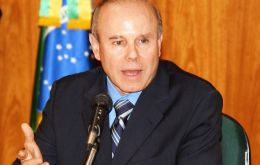
The Brazilian Government is expected to announce Wednesday a number of exports' stimulation measures in order to try to compensate the area which claims losses caused by the strong Brazilian currency exchange rate and the drop of global commerce.
-
Tuesday, May 4th 2010 - 19:20 UTC
IMF Says Latam Recovering Faster than Expected but With “Bubble” Risks
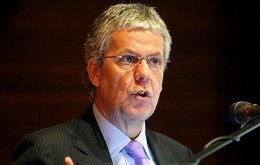
The recovery in Latin America and the Caribbean is advancing faster than anticipated but at different speeds across countries, the International Monetary Fund (IMF) said in its latest Regional Economic Outlook-Western Hemisphere report, which was launched Tuesday in Montevideo, Uruguay.
-
Tuesday, May 4th 2010 - 05:48 UTC
European Central Bank Beefs Greek Rescue-Plan; Takes “Junk” Bonds as Collateral
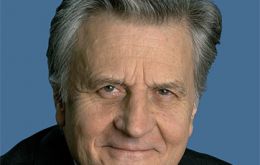
The European Central Bank (ECB) has moved to shore up the €110 billion EU/IMF rescue of Greece by offsetting the impact of the “junk” rating on the country’s debt.
-
Tuesday, May 4th 2010 - 05:37 UTC
Lula da Silva Confirms Paraguay the Promised Power Line and Bridge

President Lula da Silva reassured Paraguay that Brazil will build the promised 500 kW power transmission line from the Itaipú dam to the capital Asunción, as well as a bridge over the Paraná River shared by both countries.
-
Tuesday, May 4th 2010 - 05:29 UTC
German Cabinet Approves Contribution to Greek Bail Out
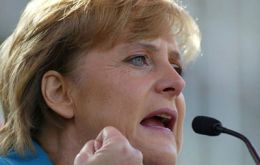
Germany's cabinet has approved its contribution to the Eurozone and IMF bailout of Greece. The German parliament is set to pass the legislation later this week to allow its loan—worth 22.4 billion Euros over three years—to be paid.
-
Tuesday, May 4th 2010 - 05:20 UTC
Almost Half of 43.7 Million Colombians Live Below the Poverty Line

More than 20 million Colombians, 45.5% of the population live below the poverty line and 16.6% suffer extreme poverty, according to an official report released by the country’s statistics agency, DANE. The country’s total population is 43.7 million.
-
Tuesday, May 4th 2010 - 05:06 UTC
In First Three Days Chile’s Pavilion at Shanghai Expo Received 46.000 Visitors

The Shanghai Expo in China officially opened its doors to the public on Saturday and Chile is one of more than 200 countries and companies showing their wares during the six-month event.
-
Monday, May 3rd 2010 - 04:14 UTC
Auto Industry Investment Plans Confirm Brazil as One of Five Main Global Markets
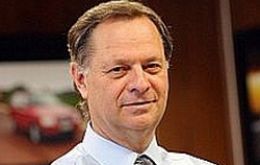
The Brazilian automotive industry will invest 11.2 billion US dollars over the next two years to 2012, an amount that tops the 8.1 billion of the three preceding years, local media said Saturday.
-
Monday, May 3rd 2010 - 02:24 UTC
Euro Zone and IMF Agree to 110 Billion Euro Aid for Greece; Summit in Brussels
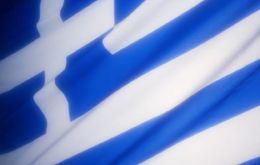
Euro zone members and the IMF have agreed to a 110 billion Euro (146.2 billion US dollars) three-year bailout package to rescue Greece's embattled economy. In return for the loans, Greece will make major austerity cuts which Prime Minister George Papandreou said involved “great sacrifices”.
-
Saturday, May 1st 2010 - 08:36 UTC
Argentina Publishes Terms of the Defaulted 20 Billion Bonds Swap

The Argentine government has published the offer to swap 20 billion US dollars in defaulted bonds on specialized media around the globe and on www.argentina2010offer.com website.
